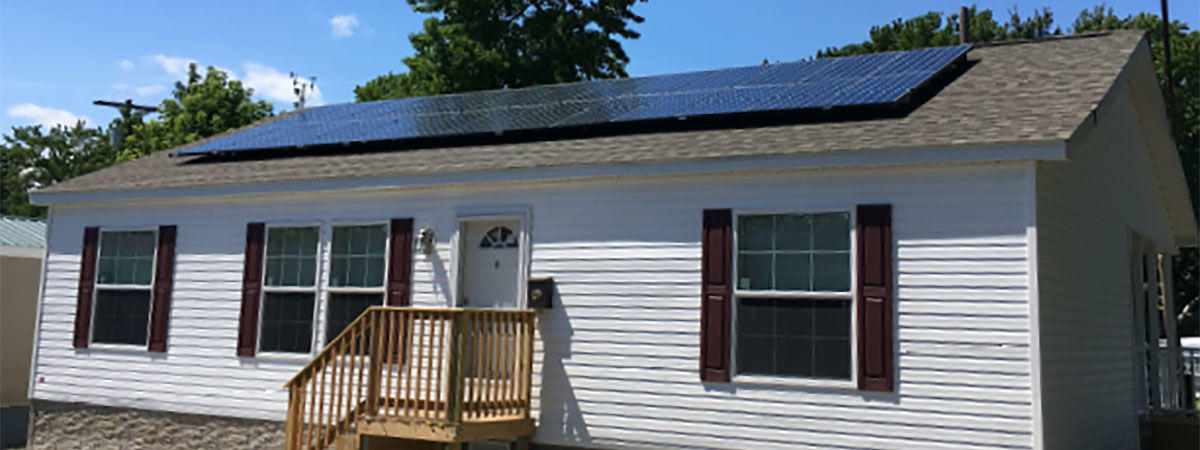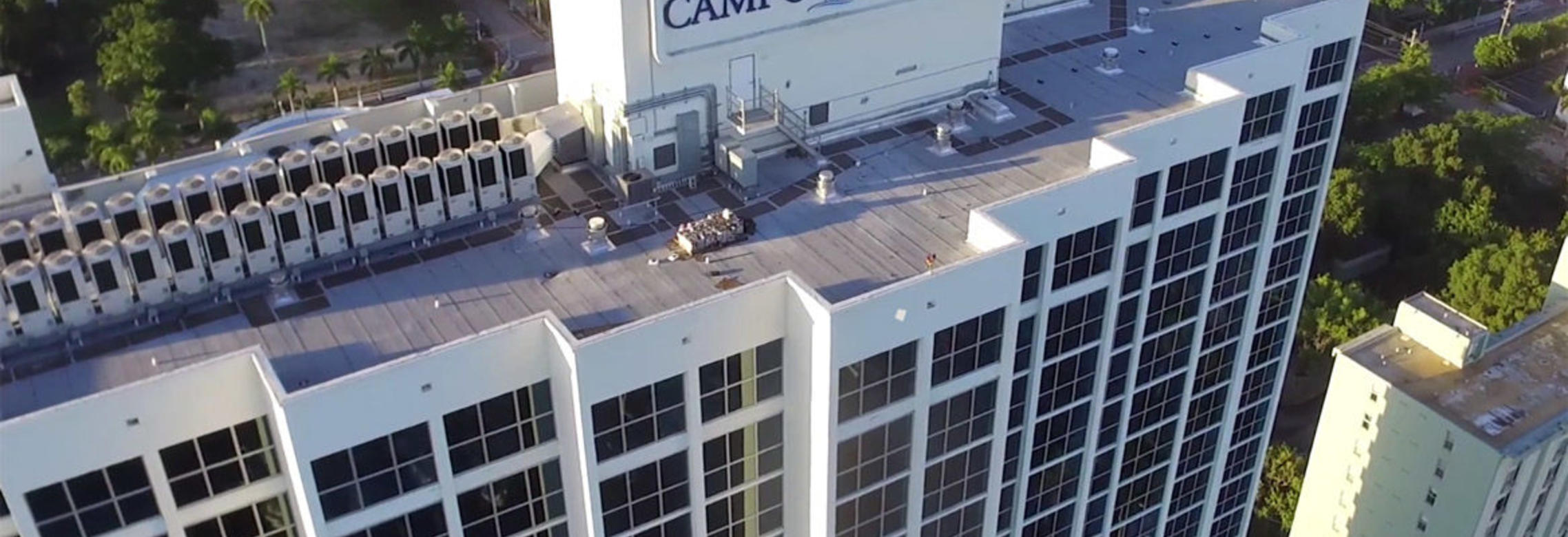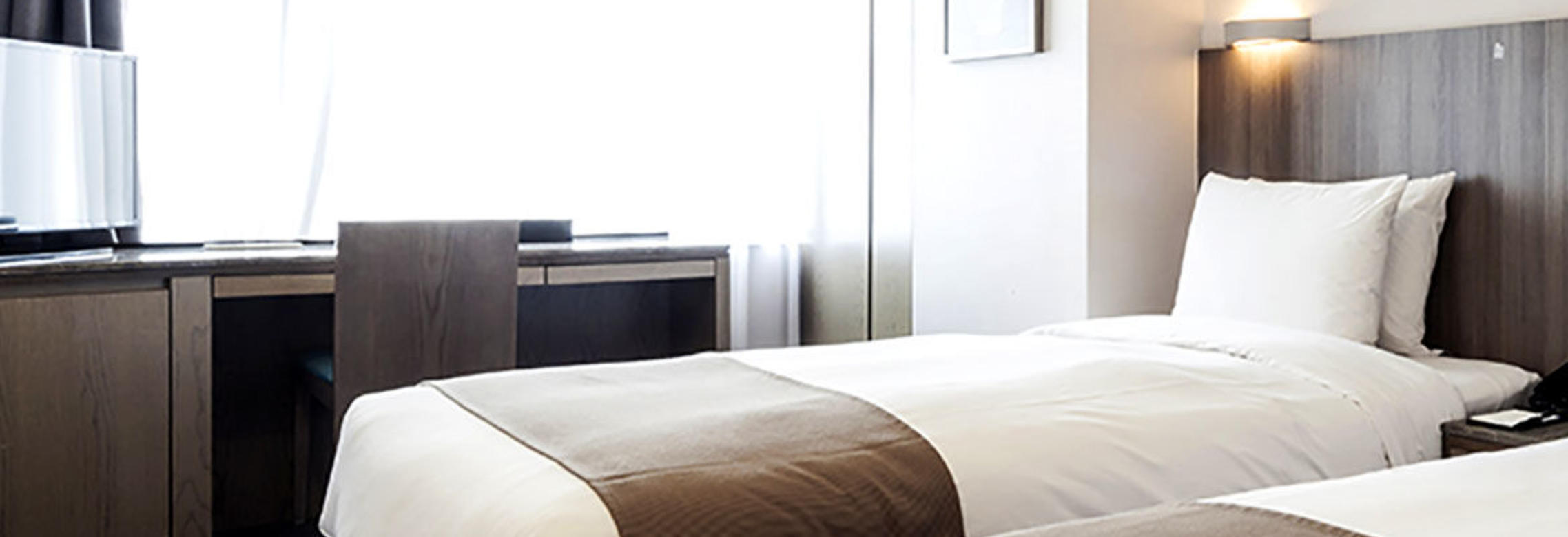Affordable Housing Alliance

As neighborhoods are redeveloped throughout the Jersey Shore, lower-income households are finding it increasingly difficult to find affordable – and comfortable – housing. Residents in Eatontown, NJ were no exception, and when the Affordable Housing Alliance purchased land that had older manufactured homes already on it, the organization committed to building new models that were both reasonably priced and had higher-quality living conditions.
The Alliance knew that utility costs were a large part of what made older manufactured homes expensive for residents. At times, residents were paying approximately $400 to $500 per month in utilities and worse, when oil and propane costs were on the rise. A lack of insulation meant the homes were wasting vast amounts of energy in order to maintain a comfortable temperature. Because of this, the new models needed to be well insulated and have energy efficient and cost-effective utilities.
Challenges
When the Affordable Housing Alliance (AHA) purchased a manufactured housing park near the Jersey shore to convert into lower-income homes, it was faced with the challenge of improving living conditions for residents without increasing their costs. Because utility bills for older units exceeded the cost of rent, the AHA made it their goal to significantly reduce utility costs in newer units while encouraging other existing residents to upgrade to an energy efficient manufactured home.
Solutions
To develop newer energy efficient homes, the Affordable Housing Alliance turned to The Levy Partnership, a building and energy consulting firm that specializes in developing and demonstrating energy efficient technology. For heating and cooling, Levy chose Panasonic heat pump air conditioners due to their high performance and efficiency. Additionally, Panasonic ventilating fans were installed to provide intermittent and continuous ventilation as well as room to room air transfer.
Results
Panasonic’s Total Home Solution significantly contributed to reducing utility consumption, and can slash energy bills by up to 50% while improving indoor air quality. The Affordable Housing Alliance met its goal to increase energy efficiency and reduce costs for residents and recognizes Panasonic’s technology as a viable solution for future new construction and renovation projects. Testing in the homes is still being conducted, but already utility bills in the new manufactured homes are 25% of what they were in older units.
The right solution for efficiency and comfort
After receiving funding from the Department of Energy’s Building America Program, The Levy Partnership began coordinating the development of new manufactured homes for the Alliance, including one Zero Net Energy home. While each of the manufactured homes was built by Champion with the goal of reducing energy usage, the goal of the Zero Net Energy home was to reduce energy consumption to zero. In order to achieve this, the home needed solar panels, which produce sustainable energy, and utilities that were energy efficient.
In choosing a heating and air conditioning solution for both the manufactured and Zero Net Energy homes, The Levy Partnership selected Panasonic’s ductless solution, which was able to be installed at Champion Homes’ manufactured housing factory. This means the unit was ready to use once the home arrived on site, saving on installation and production costs.
“Our team wanted more than a vendor when we were selecting a heating and air conditioning solution for this project. We wanted a partner who would collaborate with us to deliver the right solution for Eatontown residents’ energy and comfort needs,” said Jordan Dentz, vice president of the Levy Partnership. “Panasonic’s team provided the technical guidance we needed, plus they have the sleek, low wattage and quiet products to back them up.”
Lower cost of home ownership
Next Step, a nonprofit network that promotes sustainable home ownership, brought the Alliance and Champion Homes together for this project. Once Champion built the homes, Panasonic’s ductless solutions were installed. Because these systems do not require any ductwork, space for the residents was maximized since thick walls and soffits with ductwork were not required.
While testing in the homes will continue until mid-2018, Panasonic’s solutions are already proving helpful in contributing to both increased comfort and decreased costs for residents. Of note, utilities bills in the new manufactured homes are now 25 percent of what they were in older units: they dropped from approximately $400 to $500 per month to only about $36 to $80 per month for gas and less than $40 per month for electric. As a result, the Alliance achieved one of their primary goals for the project – lower total cost of homeownership for residents.



